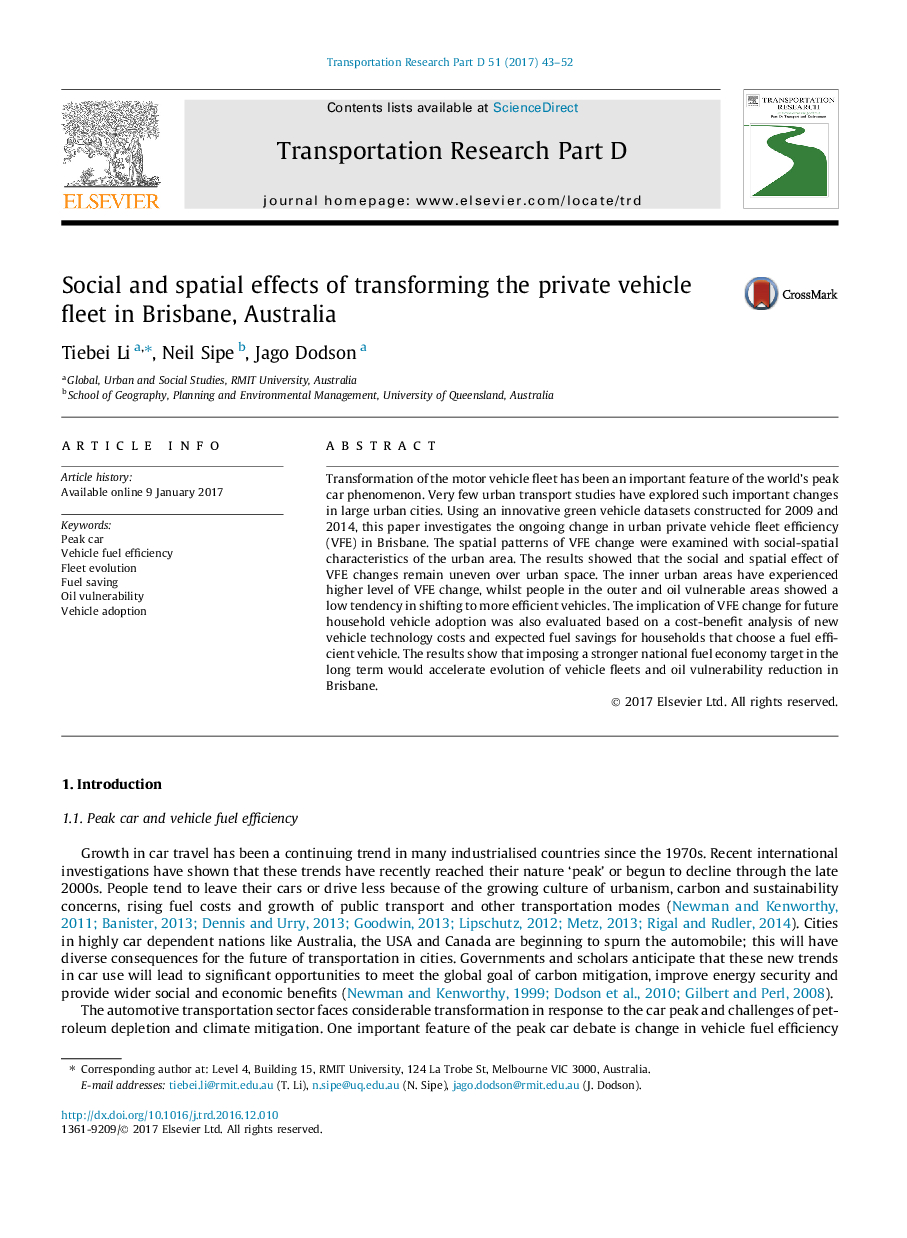| Article ID | Journal | Published Year | Pages | File Type |
|---|---|---|---|---|
| 5119386 | Transportation Research Part D: Transport and Environment | 2017 | 10 Pages |
â¢Fuel efficiency change in vehicle fleet presents a strong variation over urban space.â¢Oil vulnerable households showed a low tendency in shifting fuel efficient vehicles.â¢Fuel efficiency improvement in outer suburbs generate great benefit for fuel saving.â¢Stronger fuel economy targets will make new vehicles more efficient and affordable.
Transformation of the motor vehicle fleet has been an important feature of the world's peak car phenomenon. Very few urban transport studies have explored such important changes in large urban cities. Using an innovative green vehicle datasets constructed for 2009 and 2014, this paper investigates the ongoing change in urban private vehicle fleet efficiency (VFE) in Brisbane. The spatial patterns of VFE change were examined with social-spatial characteristics of the urban area. The results showed that the social and spatial effect of VFE changes remain uneven over urban space. The inner urban areas have experienced higher level of VFE change, whilst people in the outer and oil vulnerable areas showed a low tendency in shifting to more efficient vehicles. The implication of VFE change for future household vehicle adoption was also evaluated based on a cost-benefit analysis of new vehicle technology costs and expected fuel savings for households that choose a fuel efficient vehicle. The results show that imposing a stronger national fuel economy target in the long term would accelerate evolution of vehicle fleets and oil vulnerability reduction in Brisbane.
